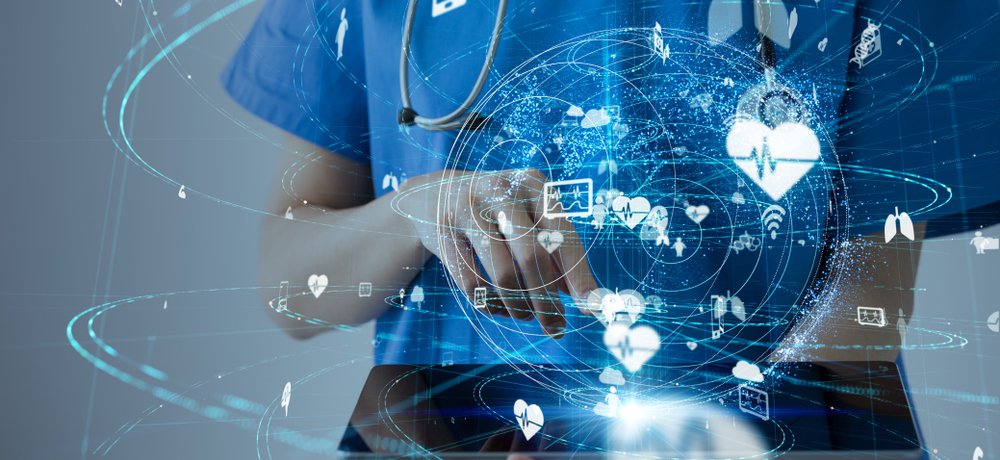
Jon Payne, director of sales engineering and education, InterSystems outlines the lessons that healthcare can learn from the fintech sector when it comes to empowering end users to take control of their data.
In the quest for advancing healthcare quality and accessibility, the healthtech sector plays a pivotal role, bridging gaps between innovative technology and patient care. Drawing inspiration from fintech’s remarkable strides in data interoperability and consumer empowerment, the healthcare industry, particularly healthtech, stands on the cusp of a transformative era. This transition focuses not only on enhancing patient outcomes but also on streamlining provider workflows and fostering a sustainable healthcare ecosystem.
Healthcare systems worldwide grapple with myriad challenges, from funding constraints to professional shortages, underlining the critical need for strategic data utilisation. The sector’s data landscape is vast yet fragmented, sourced from electronic health records (EHRs), medical imaging, laboratory systems, and wearable devices, each with its unique format and standard. This fragmentation hinders clinicians’ access to vital data, affecting decision-making and patient care quality, while also leaving patients often feeling disengaged, as they are unable to access, or understand their health information comprehensively.
A fintech blueprint for healthcare
Implemented in 2018, the UK’s Open Banking model serves as a powerful example of how enhanced data accessibility and interoperability can transform an industry. This initiative revolutionised the financial sector, granting consumers unprecedented control over their financial data and igniting a dynamic fintech market. It demonstrates the transformative impact of enabling seamless data sharing and integration.
The interoperability and data sharing mandated by Open Banking has spurred innovation in the financial sector. Fintech start-ups and established financial institutions alike have developed new apps and services, from personal financial management tools to more efficient payment services, all leveraging access to banking data. The healthtech sector can emulate this success, leveraging data interoperability to support personalised, efficient, and patient-centric care.
Healthtech’s role in empowering healthcare
Healthtech can lead healthcare’s transformation by adopting fintech’s user-centric principles, focusing on enabling patients to control their health data. This empowerment can lead to better-informed decisions and a more proactive approach to digital health tools, telemedicine, and personalised care management systems. Moreover, integrating advanced technologies like analytics, machine learning, and the Internet of Medical Things (IoMT) can enhance diagnosis accuracy, treatment personalisation, and overall care delivery.
The imperative of interoperability in healthcare
By learning from fintech, healthcare can also improve its user interfaces, making them more intuitive and user-friendly, thus enhancing patient engagement and satisfaction. Adopting a unified health data standard, akin to the Financial API standards in banking, could address healthcare’s informational divides, enabling the development of third-party applications that connect hospitals directly to patients’ homes.
This requires a concerted effort from healthcare providers, technology firms, policymakers, and patient advocates, underpinned by stringent data security and privacy measures.
The journey towards a unified health data standard is complex and requires a multi-faceted approach, blending technical standardisation with cultural and organisational change. By fostering collaboration across the healthcare sector and leveraging interoperability standards like HL7 FHIR, we can ensure data is consistently understood, facilitating the free flow of information across systems and stakeholders.
A call to action for unified data interoperability
It is time for governments and policymakers to collaborate with industry, healthcare professionals, and patients to develop a plan for implementing interoperability standards and ensuring the rapid deployment and adoption of interoperable healthtech solutions. This will require a combination of healthcare domain expertise and data experience to act as a catalyst driving it forward.
Equally it depends on the free flow of data within organisations, across communities, between information systems, from devices to apps, and from healthcare providers to innovators. Finally, it relies on health data integration, powered by interoperability standards like HL7 FHIR, enabling that flow by ensuring data is understood the same way from start to finish by devices, systems, and people.
All these are vital steps towards realising the vision of a seamlessly interconnected healthcare ecosystem. It recognises the need for a concerted effort to overcome the barriers to interoperability and harness the full potential of digital health technologies. By following the lead of the Open Banking movement, the healthtech sector can create a more integrated, efficient, and patient-centred system.
In conclusion, the healthtech sector stands at a pivotal moment. By focusing on its potential to transform healthcare through data interoperability and patient empowerment, organisations can align with fintech’s legacy of innovation.
This approach not only promises to elevate patient care but also positions the healthcare sector for future challenges, ensuring a healthier, more efficient, and patient-centred healthcare system. The journey ahead is complex but, with a collaborative and focused effort, entirely achievable, heralding a future where healthtech acts as the foundation for a transformative healthcare landscape.
NB: Ratingmania is a place to find the finest discounts on the internet and all the necessities.
Source url www.med-technews.com
InterSystems,Digital Health,wearables,Jon Payne,fintech








